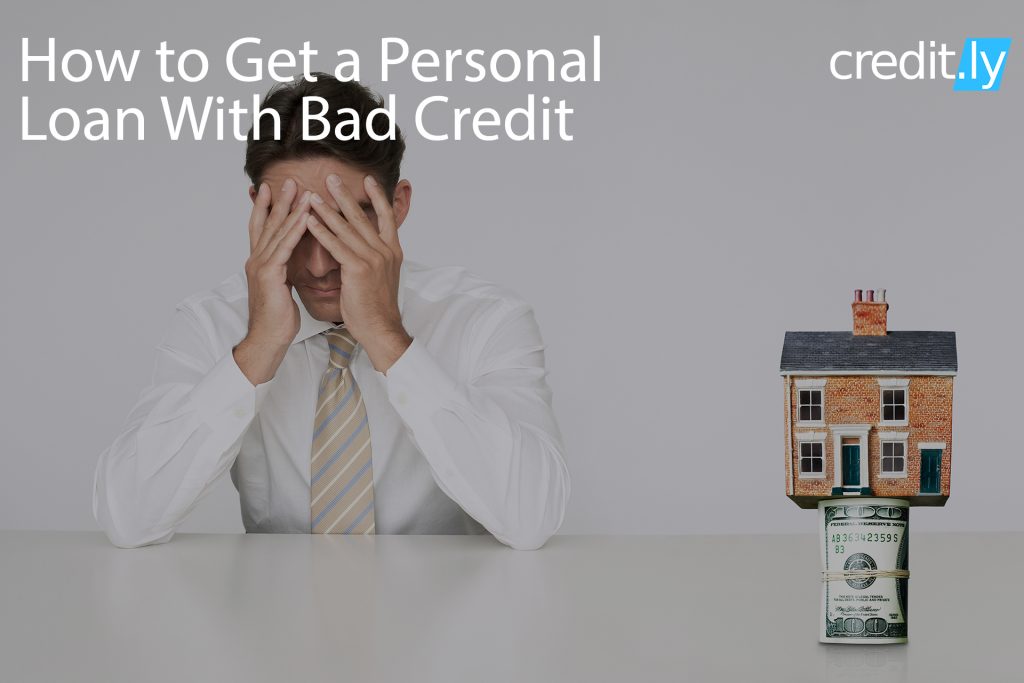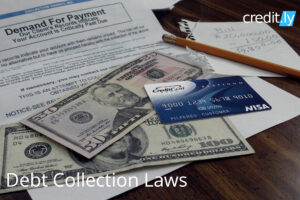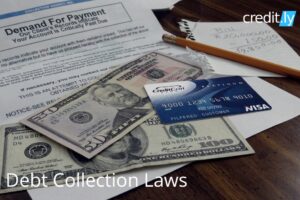[et_pb_section fb_built=”1″ _builder_version=”3.22.3″][et_pb_row _builder_version=”3.25″ background_size=”initial” background_position=”top_left” background_repeat=”repeat”][et_pb_column type=”4_4″ _builder_version=”3.0.47″ custom_padding=”|||” custom_padding__hover=”|||”][et_pb_post_title _builder_version=”3.26.6″ title_font=”|700|||||||” title_line_height=”2em” z_index_tablet=”500″ title_text_shadow_horizontal_length_tablet=”0px” title_text_shadow_vertical_length_tablet=”0px” title_text_shadow_blur_strength_tablet=”1px” meta_text_shadow_horizontal_length_tablet=”0px” meta_text_shadow_vertical_length_tablet=”0px” meta_text_shadow_blur_strength_tablet=”1px” box_shadow_horizontal_tablet=”0px” box_shadow_vertical_tablet=”0px” box_shadow_blur_tablet=”40px” box_shadow_spread_tablet=”0px” text_shadow_horizontal_length_tablet=”0px” text_shadow_vertical_length_tablet=”0px” text_shadow_blur_strength_tablet=”1px”][/et_pb_post_title][et_pb_text _builder_version=”3.29.2″ z_index_tablet=”500″ text_text_shadow_horizontal_length_tablet=”0px” text_text_shadow_vertical_length_tablet=”0px” text_text_shadow_blur_strength_tablet=”1px” link_text_shadow_horizontal_length_tablet=”0px” link_text_shadow_vertical_length_tablet=”0px” link_text_shadow_blur_strength_tablet=”1px” ul_text_shadow_horizontal_length_tablet=”0px” ul_text_shadow_vertical_length_tablet=”0px” ul_text_shadow_blur_strength_tablet=”1px” ol_text_shadow_horizontal_length_tablet=”0px” ol_text_shadow_vertical_length_tablet=”0px” ol_text_shadow_blur_strength_tablet=”1px” quote_text_shadow_horizontal_length_tablet=”0px” quote_text_shadow_vertical_length_tablet=”0px” quote_text_shadow_blur_strength_tablet=”1px” header_text_shadow_horizontal_length_tablet=”0px” header_text_shadow_vertical_length_tablet=”0px” header_text_shadow_blur_strength_tablet=”1px” header_2_text_shadow_horizontal_length_tablet=”0px” header_2_text_shadow_vertical_length_tablet=”0px” header_2_text_shadow_blur_strength_tablet=”1px” header_3_text_shadow_horizontal_length_tablet=”0px” header_3_text_shadow_vertical_length_tablet=”0px” header_3_text_shadow_blur_strength_tablet=”1px” header_4_text_shadow_horizontal_length_tablet=”0px” header_4_text_shadow_vertical_length_tablet=”0px” header_4_text_shadow_blur_strength_tablet=”1px” header_5_text_shadow_horizontal_length_tablet=”0px” header_5_text_shadow_vertical_length_tablet=”0px” header_5_text_shadow_blur_strength_tablet=”1px” header_6_text_shadow_horizontal_length_tablet=”0px” header_6_text_shadow_vertical_length_tablet=”0px” header_6_text_shadow_blur_strength_tablet=”1px” box_shadow_horizontal_tablet=”0px” box_shadow_vertical_tablet=”0px” box_shadow_blur_tablet=”40px” box_shadow_spread_tablet=”0px”]
So you’re in need of some extra funds – great! But, you have a problem. Your credit scores don’t appear to be in the best of shape. You may be wondering how to get a personal loan. Or if it’s even possible to get one. An ideal lender would be willing to look past your credit scores and be transparent when it comes to lending you money.
The good news is you can get good, fair or even bad credit loans that provide you with the cash you need. This, even if your credit scores are less than perfect. Using a personal loan responsibly can help you get on top of your finances and focus on building or repairing your credit and paying off any debts you might have.
Remember, you have choices. In order to find a personal loan with bad credit, you will need to do some research. And choose where you apply wisely. We are here to help you understand how to do that.
Loans are great when you need them, but choose a loan that won’t strap you down financially. A personal loan can help you get your personal finances under control. It’s important to note that a loan may not be the answer to all your financial problems.
Don’t accept the first offer that comes your way. There is a lot of information to consider before you attempt getting a personal loan with bad credit. This includes the information you will need. Secondly, the types of personal loans available. And lastly what scams and other fraudulent activity you need to be aware of during the process.
Here are some tips to help you learn how to get a loan with bad credit.
Gather Your Personal Information In Advance
As you think about how to get a personal loan, start collecting some information a lender may ask about. Here are some important things to know that will help you get prepared to apply for a personal loan.
Credit Score Is Key
The first thing you want to do before you apply for a loan is understand your credit and your credit scores. Because this will give you insight into the details a lender reviews when they pull your credit.
You should check your credit scores for free on Creditly To see where your credit currently stands. Checking your credit scores will not affect your credit in any way because checking your own credit scores is considered a soft inquiry or a soft pull.
You don’t need perfect credit. But your credit score impacts the terms and conditions you will qualify for. Terms such as how much they are willing to loan you and what your interest rate will be for repayment. For example, bad credit loans will likely come with higher interest rates and may be issued for lower amounts.
You may decide to improve your score before applying for a loan. If you see that your score is looking pretty lackluster. Some credit score improvement options you may consider include paying down debts. Also reviewing your credit reports for errors (and disputing any errors you find). And limiting the number of hard credit inquiries that are placed on your credit until your score rebounds. Improving your credit score before seeking a loan can help you receive much better rates.
Credit Report – What Will They Find?
You will also want to take a good look at your credit report from all three credit bureaus to make sure there are no mistakes and all the information is correct. If you see something wrong, you should report it and dispute it.
Each of the three credit bureaus ( Equifax, Experian, and Transunion) have their own credit report for you to look at. Sometimes the information between the three may slightly vary. Which means it is important that you check and monitor each one of them on a regular basis to track any changes. Or catch any instances of suspicious activity.
Checking your credit reports will also give you a good indication of where you would stand with a creditor. This may offer you insight on what you need to do to begin repairing and rebuilding your credit. All before you begin to apply for any type of personal loan.
If you have decided to go ahead and proceed with applying for a personal loan and what you will have to do to try and qualify for it. Take the following into consideration:
Prove You Can Pay the Loan Back, You Are Credit Worthy
It’s important to note that lenders will want to know you can repay the personal loan before they issue it, and the amount they are willing to lend often depends on your ability to repay them. It’s a good idea to show how you will be repaying them by offering proof of income or having a cosigner.
A cosigner is a person that is being asked to guarantee that the debt will be paid back. If the borrower fails to make the payments, then the creditor will turn to the cosigner to collect the money that is owed on the account.
The cosigner will need to have a good credit score and credit history and having a healthy length of time reported on their credit history may also help the chances of the creditor agreeing to make the loan.
If you find that you need to have a cosigner in order to get approved for the personal loan, then they will have to be able to provide the creditor with proof of income. This is to prove that if you fail to make the payments, the cosigner will be able to do so.
Talk with Your Bank or Credit Union by Shopping Around
Next, research minimum credit score requirements for personal loans from lenders in your area. A good place to start is with the bank or credit union you currently use, as they already have an understanding of your financial profile.
Something worth noting is that credit unions may have more flexible lending standards and may be more willing to offer you a small personal loan. If you have been at the same bank for years, consider asking the bank’s loan department how to get a loan. You may also want to inquire if your credit score would qualify you for a personal loan.
Consider Which Loans Are Best for You And Your Situation
Remember when we mentioned limiting the number of inquiries on your credit while you work to improve it? Here’s why:
Each loan application you submit triggers an inquiry into your credit, and hard inquiries can lower your credit score roughly five to ten points. So, when you decide to start applying for a personal loan, you will want to do your research and not apply for every loan you come across.
It’s a good idea to only apply for loans from a lender you trust and has lending standards you feel confident you can meet. You may be able to find the minimum credit score a lender requires for a personal loan on the lender’s website, or you can call the lender and speak with a representative.
Loans for bad credit might have higher interest rates or be capped at a lower amount because lenders are much more cautious when doing business with people with lower credit.
Secured Personal Loans
Secured personal loans are some of the most common types of loans and are generally used for a car or mortgage. When you borrow money from a secured personal loan, you are securing the amount that you are borrowing with one of your assets. Your asset then becomes collateral for the loan if you are unable to pay as agreed.
A secured personal loan is risky because they can take whatever you used as collateral if you do not maintain all of the payments on the account and pay on time as agreed upon.
Unsecured Personal Loans
Unsecured personal loans occur when you borrow money from the bank or financial institution, and you agree to make all the payments as discussed until the account is paid back in full.
This type of unsecured loan, when not paid as agreed upon, may incur additional fees on top of the amount owed, but they are not secured with an asset or any other type of collateral like in a secured personal loan agreement.
Beware of Scams – They Are Everywhere
There are plenty of online lenders promising loans with no credit check to people who have damaged or bad credit. While this option might sound ideal, be cautious. These websites may be nothing more than advance fee loan scams. According to the Federal Trade Commission, a lender not seeming interested in your credit history is a big red flag and could indicate a fraudulent website.
If you are someone hoping to get a personal loan with bad credit, you may be the ideal target for scammers or fraudulent lenders. Consider contacting your state’s Department of Banking or Department of Financial Regulation to see if a lender is registered to do business within the state.
The Better Business Bureau can also tell you if any customers with bad credit have filed complaints against specific lenders.
One of the biggest consequences of having bad credit is being more susceptible to scams and other fraudulent behavior. Just remember, every legitimate lender will want some proof telling them that you will be able to pay back the loan.
Also, a red flag of a scam would be when the lender says you have first send them some kind of upfront payment before they can give you the personal loan. You will also want to be careful not to provide any sensitive information such as your social security number or bank account information without first obtaining the legal written documentation concerning the loan.
What is a Personal Loan?
Let’s take a closer look at what it means to want a personal loan. Personal loans are typically loans given by a bank or other financial institution. They are usually unsecured. They are also installment loans that can help the borrower do a number of things. Such as consolidating their debt or making a payment on something they weren’t expecting.
What is a Payday Loan?
A payday loan offers a lower amount of money at an even higher interest rate than other personal loans. Payday loans are also to be paid back when the borrower receives their next paycheck. This makes it a very short-term personal loan to help cover any unexpected expenses.
Payday loans also have an additional cost of anywhere between ten and thirty dollars for every one hundred you borrow. These types of loans generally have a cap of about $500.
Payday loans do not require any kind of credit check from any of the three major credit bureaus. This means obtaining one will have no initial effect on your credit score. However, if it is not paid back within the two to four-week timeframe, it is then sold to a debt collector and placed in collections. This will show up on your credit report with adverse effects. And Payday loans also usually come with extremely high-interest rates. So you will be paying much more back than the amount you initially borrowed. All considerations to make prior to obtaining a payday loan of any kind.
Next, we will determine what exactly qualifies as bad credit.
What is Considered Bad Credit?
Credit scores can range depending on the model you are looking at. FICO scores, for example, fall within the range of 300 and 850. 300 would be the lowest spectrum of credit in this model and 850 would be the highest possible score you could have.
On average, creditors will say that a good credit score would be somewhere between the 700 and 850 mark. An okay or fair score would fall between 620 and 679, and a low to poor credit score will be anything falling under 580.
If you are in the lower spectrum, you may want to reconsider trying to get a personal loan because you will be faced with much higher interest rates, if you are approved for the loan at all.
What is Peer-to-Peer Lending?
If you find that you will not qualify for the traditional personal loan, peer-to-peer lending is another method of debt financing. this can help enable individuals to borrow and lend money to other individuals without a financial institution as the middleman.
With peer-to-peer lending, the lender will take funds from their own money to lend to an individual. This after determining the amount and an agreed upon interest rate for repayment of the loan.
Peer-to-peer lending is often referred to as a type of crowdfunding. Because it is offering unsecured personal loans to people who may not otherwise be able to get a personal loan. In the traditional way.
Bottom Line?
The bottom line is to do your research before applying for any kind of personal loan when you are faced with bad credit. It is also recommended that you look at other alternatives such as attempting to rebuild your credit and build up your credit scores first. This is so you have a better experience and receive a better APR. Sometimes a personal loan and bad credit are best left separated. A better look at your credit history with a credit check will yield more positive results.
Remember, a personal loan is not always the answer when it comes to your financial woes. Sometimes thinking more long-term may get you to arrive more successfully at your goals for your future financial health and freedom. Check out all the credit resources available at Creditly.
[/et_pb_text][/et_pb_column][/et_pb_row][/et_pb_section]









